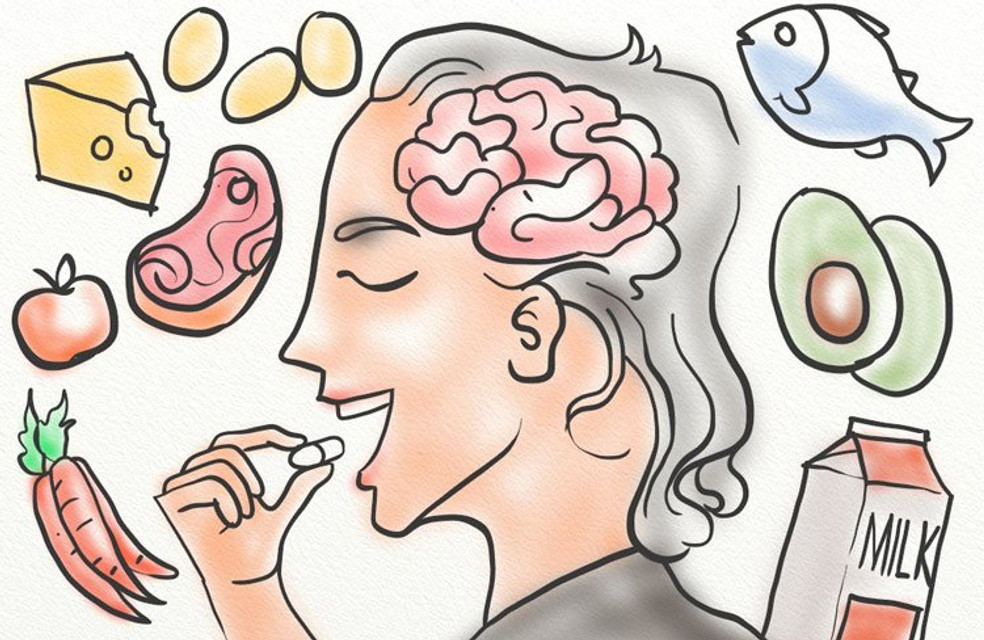Jan 23rd 2024
Vitamin B6 and Other Levodopa-Related Deficiencies
Patients living with Parkinson's disease (PD) may be steered toward levodopa to manage symptoms. Presently, levodopa remains the most common PD drug. However, as with many medications, levodopa can create nutrient deficiencies with serious side effects when taken over time, with decreasing amounts of vitamin B6 and vitamin B12 being among the concerns.
What Is Parkinson's Disease?
PD is a progressive neurological disease in which brain cells that produce the neurotransmitter dopamine gradually die off. Low levels of dopamine cause various movement and non-movement related dysfunctions. The drugs that treat PD either replace or enhance dopamine, and central among these drugs is levodopa.
What Is Levodopa?
Considered the strongest medication available for managing PD and Parkinson's-like symptoms, levodopa was introduced in the 1960s and is currently classified as a central nervous system agent. Once taken, levodopa is converted into dopamine in your body. It is usually combined with another drug, carbidopa, a decarboxylase inhibitor that prevents levodopa from being converted into dopamine before it reaches the brain.
The combination of levodopa and carbidopa is called Sinemet. This combination further assists with controlling side effects like nausea and vomiting, and ensures a larger concentration of dopamine travels to the brain.
Patients tend to be prescribed Sinemet after developing PD in response to encephalitis, carbon monoxide poisoning or manganese poisoning. Common forms include standard, disintegrating and extended-release tablets and an extended-release capsule.
Vitamin Deficiencies Resulting from Levodopa Use
Vitamin B6 Deficiency
Past studies have linked carbidopa with low vitamin B6 (pyridoxine) levels. In a recent study, Spanish researchers measured vitamin B6 levels in 24 patients being treated with levodopa/carbidopa. Six of these patients were being given the drug combo by infusions into their small intestine; the others took the drug orally.
Of the 24 patients, 19 were low in B6, and those given the infusions were especially low. Four out of the six being given infusions had levels so low they couldn't even be detected. Of the patients with non-detectable levels, two showed evidence of neuropathy (nerve pain), which is a symptom of B6 deficiency and a common problem in PD.
Commenting on this study in the Townsend Letter, Dr. Alan Gaby, an expert in using nutrition in medicine, suggested that patients with Parkinson's disease who are taking levodopa/carbidopa supplement with a moderate dose (25-50 mg/day) of vitamin B6.
He noted that some doctors hesitate to give patients taking levodopa supplemental vitamin B6 based on reports that it can make PD symptoms worse, but that these problems occur only when levodopa is taken without carbidopa. In fact, a 1971 study showed that supplementing with 25 mg daily of vitamin B6 enhanced the effectiveness of levodopa as long as it was taken with carbidopa.
Vitamin B12 and Other Deficiencies
Treatment with levodopa can lead to deficiencies in other vitamins as well, such as vitamin B3 (niacin), folic acid and vitamin B12.
Such deficiencies can produce neurological symptoms that are falsely attributed to PD. For example, according to neurosurgeon Russell Blaylock, M.D., B12 deficiency can produce confusion and lack of mental clarity, poor memory, insomnia, nervousness, weakness, fatigue, imbalance, anxiety, depression, tremors and dementia-all symptoms of PD.
Deficiencies in B12 are common, especially as you age. Not too long ago, Dr. Blaylock says, the elderly got regular B12 shots, at least every year if not monthly. Since that time, rates of Alzheimer's, Parkinson's and other neurodegenerative diseases have skyrocketed.
Anticipating Vitamin Deficiencies
If you're a patient currently taking levodopa, take charge of your health with Beyond Health's supplements.
For most people, taking two tablets of our daily Multivitamin insures against deficiencies in the B vitamins. But some will need our B-Complex formula in addition (i.e., those under considerable stress, including the stress of having a chronic illness).
If you're over age 50, we recommend taking one of our B12/folate sublingual (under-the-tongue) tablets daily for extra protection and extra energy. (The sublingual delivery system is equivalent to the traditional "B12 shot," and a lot less painful!)
If you have a chronic illness, whether or not you're taking medications for it, it would be wise to get checked periodically by a functional medicine doctor or other alternative healthcare practitioner skilled in testing for and evaluating nutritional deficiencies.
Additional Resources:
https://medlineplus.gov/druginfo/meds/a601068.html
https://www.parkinson.org/Understanding-Parkinsons/Treatment/Prescription-Medications/Levodopa
References:
- Rojo-Sebastian A. Vitamin B6, deficiency in patients with Parkinson’s disease treated with levodopa/carbidopa. Clinical Neuropharmacology . September/October 2020;43(5):151-157 .
- Gaby A. Vitamin B6, Parkinson’s disease and levodopa/carbidopa, Gaby’s Literature Review. Townsend Letter, October 2021;459:12.
- Yahr MD. Pyridoxine, levodopa and L-alpha-methyldopa hydrazine regimen in Parkinsonism. Journal of the American Medical Association . June 1971;216(13):2141 .
- Blaylock R. Vitamin B12 deficiency and dementia. The Blaylock Wellness Report. February 2012.
 Fuel your life with the purest vitamins
Fuel your life with the purest vitamins
